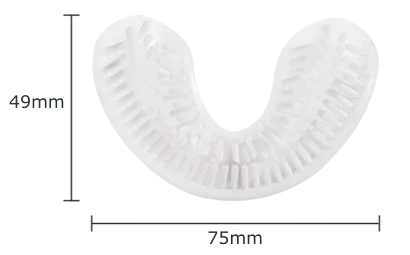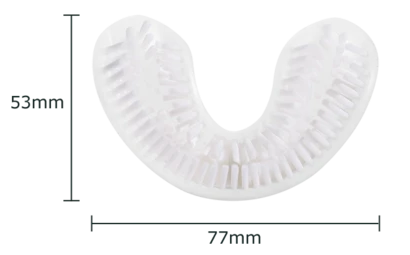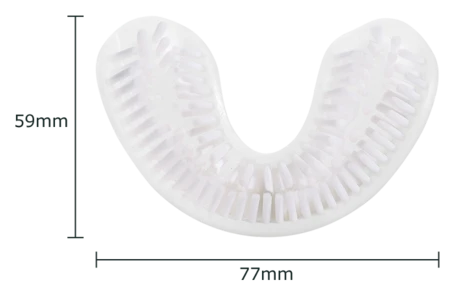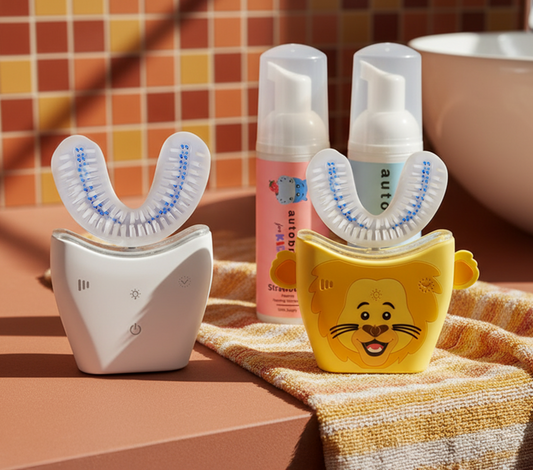
Bruxism - Types, Causes, and Treatments
What is bruxism?
Bruxism is a condition in which you clench, gnash, or grind your teeth. If you suffer from bruxism, you may unconsciously grind your teeth while awake or asleep. Sleep bruxism is considered to be a sleep-related movement disorder. People who have sleep bruxism typically suffer from other sleep disorders, such as snoring or sleep apnea (pauses in breathing).
This condition can also cause plenty of uncomfortable side effects, such as headache, sore jaws, facial pain, and a negative impact on your dental health.
What happens to your teeth when you grind them?
Your teeth are made of extremely strong minerals known as hydroxyapatite, which also makes up your entire bone structure. When you grind your teeth, you exert incredible force on your teeth which can wear them down and cause quite a bit of damage.
Over time, the constant grinding on your teeth can lead to very negative effects on your oral health. All of the previously mentioned side effects of bruxism will only exacerbate over time if treatment is not administered.
🦷️ Toothy Tip: AutoBrush Dental Flossers contain hydroxyapatite to help keep your teeth strong and healthy and to repair damage caused by bruxism.
Some of the consequences of prolonged bruxism include:
- Enamel loss: Enamel is the protective layer on your teeth. Constant grinding can lead to this layer being worn down or removed entirely. This can lead to increased sensitivity and risk for cavities and tooth decay.
- Gum Loss: Gum recession can be a serious issue for your dental health as it leaves vulnerable surfaces exposed to bacteria growth. Grinding your teeth can exert over 250 lbs per square inch of force on the surface of your teeth. This can push your gums away, leading to increased risk of cavities and bacteria growth on sensitive surfaces.
🦷️Toothy Tip: Ensure you’re brushing well and keeping your gums as healthy as possible to minimize any damage caused by grinding your teeth.
- Migraines: Since grinding your teeth exerts extreme force on your teeth and facial muscles, this can cause tension headaches and migraine episodes.
- Fractured Teeth: Grinding your teeth can eventually wear them down enough to start cracking or caving. This can necessitate a root canal or tooth extraction.
Symptoms and Side Effects of Bruxism
Grinding your teeth can lead to numerous side effects and conditions. While it’s not crystal clear if some of these conditions are caused directly by bruxism, there’s a good chance that you are at higher risk of them:
- Depression
- Kidney Disease
- Sleep apnea
- Behavioral problems, especially in children
- Gastroesophageal reflux disease
Types of Bruxism
Science tells us that today there are two distinct types of bruxism, or teeth grinding. While these types of bruxism occur under different circumstances, the effects are essentially the same.
Awake Bruxism
Have you ever noticed, while staring at your computer or doing any menial task, you suddenly find yourself with a tightly clenched jaw? If you find this happening often, you may be experiencing awake bruxism.
There are plenty of reasons this could be happening, but it mostly comes down to stress, frustration, anxiety, or tension. It could also simply be a coping strategy that you picked up while in deep concentration.

Sleep Bruxism
While daytime grinding is typically related to emotional or habitual issues, sleep bruxism is a bit different. Sleep bruxism is more closely related to sleep quality, and it’s usually related to waking up during the night, even if you don’t realize it.
This can happen due to various sleep disorders, including sleep apnea among others.
What Causes Bruxism?
The exact causes of bruxism are up for debate at the moment, mostly because it’s classified as a multifactorial health issue. This means that there could be many reasons it occurs, and isn’t pinned to one simple explanation. Every case of bruxism is unique and finding a specific cause can be challenging as it goes on a case-by-case basis.
While bruxism is a controversial area of research, there are three defined causes as of now:
Peripheral Factors
These factors include things such as misaligned teeth or poor occlusion of the teeth. If your teeth are misaligned, it can lead to instability in your jaw. If you’ve had any work done on your teeth, such as a filling or extraction, speak to your dentist to ensure everything is aligned properly or it could lead to bruxism.

Psychosocial Factors
These factors are a bit harder to draw conclusions from, as they broadly vary and are sometimes loosely connected to bruxism. Some of these factors include but are not limited to:
- Depression
- Stress/Sensitivity
- Anxiety
- Anger management struggles and hostility toward others
These factors are more closely related to awake bruxism rather than sleep bruxism, so trying out some relaxation techniques wouldn’t hurt.
Central Factors
Central factors surrounding bruxism have to do with the balance of the systems in your body. Meaning certain medications, disorders, and other factors can cause imbalances in your body chemistry. This can lead to grinding teeth.
Aside from medication, it can also be hereditary, meaning it runs in the family. Odds are, if your parents grind their teeth, you do too - along with your children.
Some of the medications or substances that can lead to bruxism include:
- SSRIs
- Nicotine
- Anti-Anxiety Medication
- Antipsychotics
- Amphetamines (including ADHD medication)
Teeth Grinding in Kids

Bruxism is fairly common in children and can manifest due to a plethora of different reasons. Some of these reasons include:
- Misaligned teeth
- Pain from ear aches or teething
- Stress, usually from a change in routine or certain problems at home
- Various medical reasons, including cerebral palsy and hyperactivity
Bruxism leads to the same nasty side effects in kids as it does in adults - such as headaches, cracked teeth, and receding gums.
Since kids will rarely recognize bruxism for what it is, it’s important to be aware of the signs. Watch out for grinding noises when your child is sleeping, complaints of sore jaws after waking up, or pain while eating and chewing different foods.
Depending on the reason for your child’s struggle with bruxism, there are a few things you can try to help, such as:
- Helping them relax before bedtime, usually by singing songs, taking a warm bath, or reading a book
- Speaking to your child about changes in their routine that could be causing stress
- Being aware of daily stressors that could be causing bruxism
- Ensure they’re keeping their teeth well brushed and cleaned to minimize potential damage
Most kids can outgrow bruxism after they lose their baby teeth, but you should reach out to a dentist if you are concerned.
Final Thoughts…
Bruxism is an extremely common issue for many kids and adults. I personally had to unclench my jaw twice while writing this - but I digress. It’s important to get a head start on treating it by speaking to your dentist to pinpoint the reasons why you or your kiddos are grinding their teeth. Be on the lookout for the signs that your child is grinding their teeth, as they often aren’t aware they’re doing it or that it’s even an issue.












